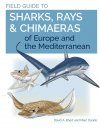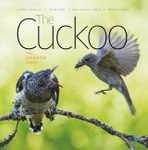Field / Identification Guide
By: David A Ebert(Author), Marc Dando(Author)
383 pages, colour photos, colour & b/w illustrations, colour distribution maps
![Field Guide to Sharks, Rays & Chimaeras of Europe and the Mediterranean Field Guide to Sharks, Rays & Chimaeras of Europe and the Mediterranean]()
Click to have a closer look
About this book
Customer reviews
Biography
Related titles
About this book
There has long been a need for a field guide to all the European cartilaginous fishes (sharks, rays and chimaeras). Many species within this group are included in the Red Data list, with many more waiting in the wings. Increased research into this group has led to a demand for a comprehensive and easy to use field guide accessible to citizen-scientists, conservationists, fishermen and researchers alike.
This field guide covers the Mediterranean, the northeast Atlantic including Iceland, all the Scandinavian coasts and the Black Sea, and as far south as The Canary Islands, describing all 143 species. Each species account incorporates a full species text, including identification, habitat, biology and status, a colour distribution map, an easy to read depth guide, at a glance icons and at least two colour illustrations, with many accounts showing colour variations never illustrated before. Throughout Field Guide to Sharks, Rays and Chimaeras of Europe and the Mediterranean are illustrated key guides, enabling the reader to accurately identify down to species where possible. Comparison plates of similar species and plates of teeth also aid identification. Eggcases for the group are also illustrated where known.
This is the first of a series of guides that will eventually cover all the worlds regions where cartilaginous fishes are found.
Customer Reviews
Biography
Dr David Ebert who earned his PhD at Rhodes University, Grahamstown, South Africa, is the Program Director for the Pacific Shark Research Center, a research faculty member at Moss Landing Marine Laboratories, and an honorary research associate for the South African Institute for Aquatic Biodiversity and the California Academy of Sciences Department of Ichthyology. Dr Ebert has been researching chondrichthyans around the world for more than three decades focusing his research on the "Lost Sharks", a term he coined to highlight the plight of those little known, and unknown, shark, ray, and ghost shark species that have been missing and forgotten. His search for the Lost Sharks has taken him to six continents and to over 25 countries. Dr Ebert has named 40 new species, authored 28 books, including Sharks of the World and Sharks, Rays, and Chimaeras of Europe and the Mediterranean. Dr Ebert is the president-elect of the American Elasmobranch Society. He serves as an advisor and consultant for the Food and Agriculture Organization of the United Nations, on Chondrichthyan related issues. His research has been featured on the acclaimed BBC series Shark, Discovery Channel's Shark Week and National Geographic.
Marc Dando is a scientific illustrator and publisher whose books include Guide to the Manta & Devil Rays of the World and A Pocket Guide to Sharks of the World (both Princeton).
Field / Identification Guide
By: David A Ebert(Author), Marc Dando(Author)
383 pages, colour photos, colour & b/w illustrations, colour distribution maps

























![Lo Squalo Bianco nei Mari d'Italia [The White Shark in the Seas of Italy]](http://mediacdn.nhbs.com/jackets/jackets_resizer_medium/17/178659.jpg?height=150&width=96)
![Guia de Identificación de las Mantas y Rayas Diablo del Mundo [Field Guide to Manta & Devil Rays of the World]](http://mediacdn.nhbs.com/jackets/jackets_resizer_medium/26/268159.jpg?height=150&width=212)










